Lord Rothermere: Who is the man behind the Daily Mail?
News this week that the Rothermere family is considering making a bid to take the owner of the Daily Mail news group private represents a rare foray into the spotlight for Jonathan Harmsworth, the quiet billionaire who runs one of the most enduring media empires in the world. Sean O'Grady takes a look at his life


There’s a very old joke that Tony Benn used to tell about the hereditary principle. A man settles into the chair in his new dentist’s surgery and makes a little small talk before the drills come out to play. “Where did you study dentistry?” he asks. The young dentist turns around and replies, “Oh, I didn’t study dentistry, but, you see, my father and grandfather were both very good at the job, so I’m a hereditary dentist, and you’re my first patient. Open wide!”
There are, though, times when the hereditary principle works out more successfully, and though it pains any egalitarian to admit it, the 4th Viscount Rothermere, Jonathan Harmsworth (that being the family name), is one of them. The news this week that he is hoping to take his family business “private” and delist its shares from the public stock market seems another shrewd move to ensure the continued commercial success of the Daily Mail & General Trust (DMGT), the holding company for the main operating business assets. These extend far beyond the Mail and Metro print titles and the phenomenally successful MailOnline website, with stakes in various data businesses, the Cazoo digital car trading site, an insurance risk assessor, conference arrangers and even a mini venture capital fund.
The idea is that they would distribute the 20 per cent stake in Cazoo to DMGT shareholders, plus sell the insurance risk business – with Rothermere getting the lion’s share. He’d then use that big pile of cash to buy out the remaining parts of the DMGT from the rest of the shareholders. The continuing DMGT company would then be much smaller and focused on the media side, and, of course, the Mail brand, now global thanks to the web. What that means for the future of the Mail titles, print and digital, is far from clear. It’s hard to imagine Rothermere breaking up or selling off the Mail, founded by his forbears; but it would be unlike him to do nothing with it, and DMGT is not famed for its sentimentality. Digital-only, eventually, seems one obvious option.
Going private would mean much less intrusion and public scrutiny of the accounts of the company – and thus a significant part of the Rothermere fortune. The little bit of magic in the deal (for Rothermere) is the unusual structure of DMGT – it has two classes of shares. The voting shares are owned 100 per cent by Rothermere (he bought out other family members some years ago), and thus the non-voting shareholders, including various investment and pension funds, have no formal legal say in whatever deal is made. Apart from some very limited statutory protection against abuse, they have little defence if they don’t like the terms of the restructuring, and will face a “Hobson’s choice”. That said, it would provide a decent but not spectacular return on their long-term investment in the company. Naturally, Rothermere wouldn’t wish to shaft them, given that one day he might need outside investors once again, but he looks to be getting the best of the action. Smart.
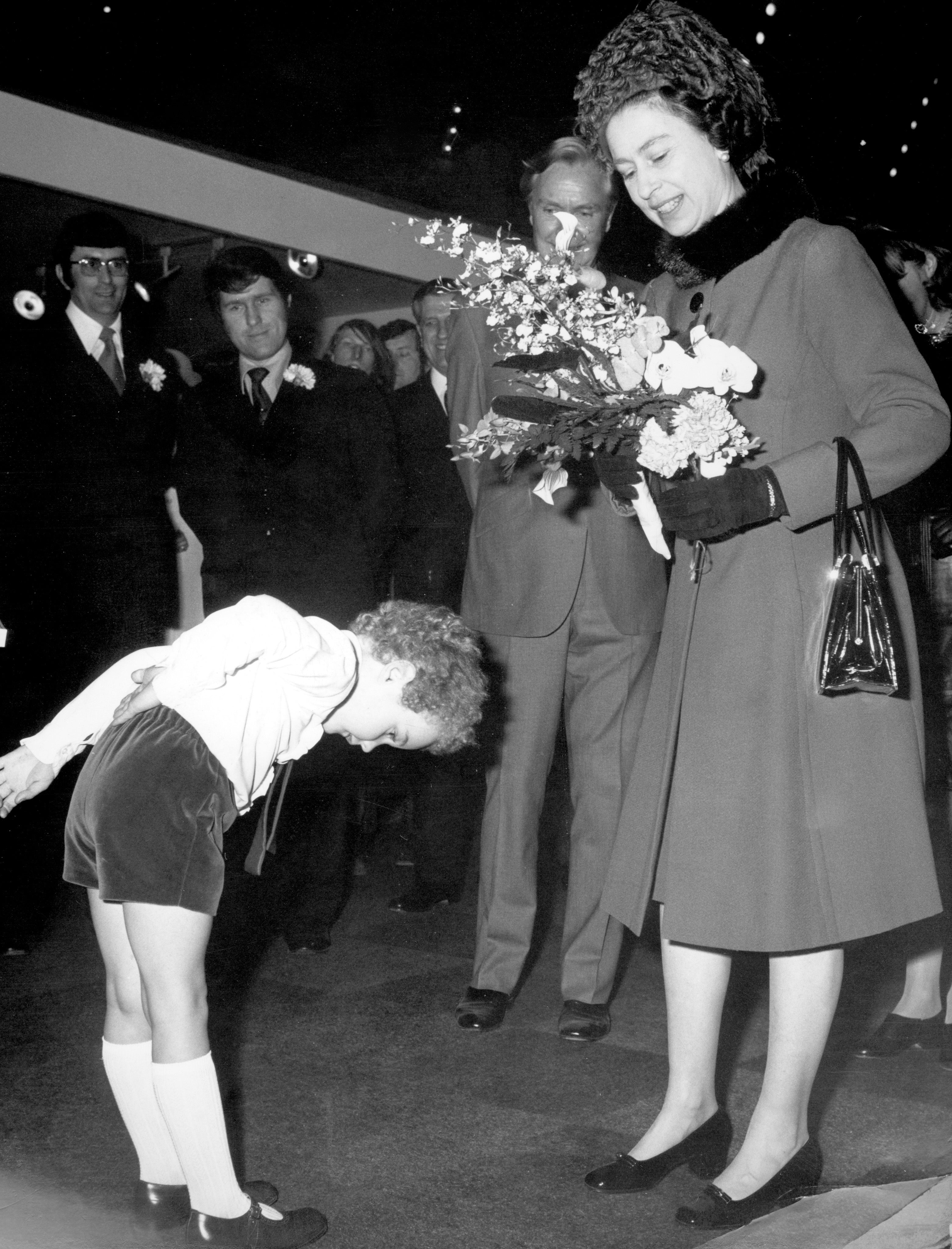
Nor is it so unusual. Privacy and secrecy is not uncommon in media family businesses, and Rothermere has always been an active executive chairman. He inherited the chairmanship of DMGT and ownership of the bulk of the business in 1998 from his father, who died while they were dining together. At just 30, though having worked at the company since the 1980s, he set about building on the achievements of his forebears. There were a few false moves, but a golden rule was that DMGT never “bet the ranch” on any given project. They were very late to the digital boom, but made up for it by making MailOnline one of the largest news websites on the planet. Its obsessions with showbiz and cellulite, and its magpie eye for a story have delivered vast audiences; the “sidebar of shame” is its dubious gift to journalism. DMGT built and floated property website Zoopla a few years ago, and bought the bright and breezy i newspaper from the stricken Johnston Press in 2019 (the i having originated as an offshoot of The Independent). On the other hand, Rothermere failed to sell off the “Northcliffe” regional and local titles for £1bn when he had the chance in 2005, eventually letting them go for £53m or so.
So Jonathan Harold Edmond Vere Harmsworth, 4th Viscount or Lord Rothermere, who will turn 54 in December, is continuing the tradition of sound business judgement that began with the founding of the newspaper empire by his great-grandfather (Harold Harmsworth) and great-great uncle (Alfred Harmsworth) back in the 1890s. With no great fortunes behind them or connections to rely upon, but only what we would now call “vision”, they quickly dominated the then rapidly growing popular press, helped by the rise in literacy and the technological wonders of the day. They, and the rest of the Rothermeres, weren’t intellectuals, but they knew what they wanted and how to get it – money and power. Within about 30 years they were in the House of Lords, had helped to engineer the removal of a prime minister (Asquith) during the Great War, installed another (Lloyd George, who upgraded their peerages), and acquired a vast stable of national, local news regional newspapers and magazines. They were powers in the land. Before television, before even the wireless (not wifi – the radio), before the BBC, newspapers were the sole method by which the general public got its news and formed its opinions, and the Harmsworths had about a 40 per cent share of the market. They were the tech billionaires of their day, feared and loathed by politicians in equal measure.
As with his father, Jonathan Harmsworth followed the general rule of finding a gifted editor that can be trusted, and then leaving them to it for a very long tenure
Other great historical newspaper dynasties have come and gone: the Berry family (Telegraph, long since forgotten), the Aitkens/Beaverbrooks (the Express), the Murdochs (Sun, Times, Sky, etc, and maybe not for much longer), the Barclays (Telegraph and Spectator and looking to sell out), the Maxwells (Mirror Group, with Ghislaine a stranded relic), the Thompsons (Times)… but only the Harmsworth/Rothermere name looks set to still be in the game for the next few years at least. Jonathan Harmsworth’s son Vere is being carefully groomed for his future, in the usual family tradition.
The current Lord Rothermere was inducted into the family firm soon after he’d completed his education, at the spartan Gordonstoun, and Duke University, North Carolina. As with his father, he followed the general rule of finding a gifted editor that can be trusted, and then leaving them to it for a very long tenure. The 3rd Viscount, Vere Harmsworth, successfully revived the Daily Mail in the 1970s by taking it tabloid and installing the brilliant David English, who poached and signed up the best talent in Fleet Street. It captured the zeitgeist and soon overtook its old rival the Daily Express (which suffered the humiliation of having to sell the London Evening Standard to DMGT to raise money).
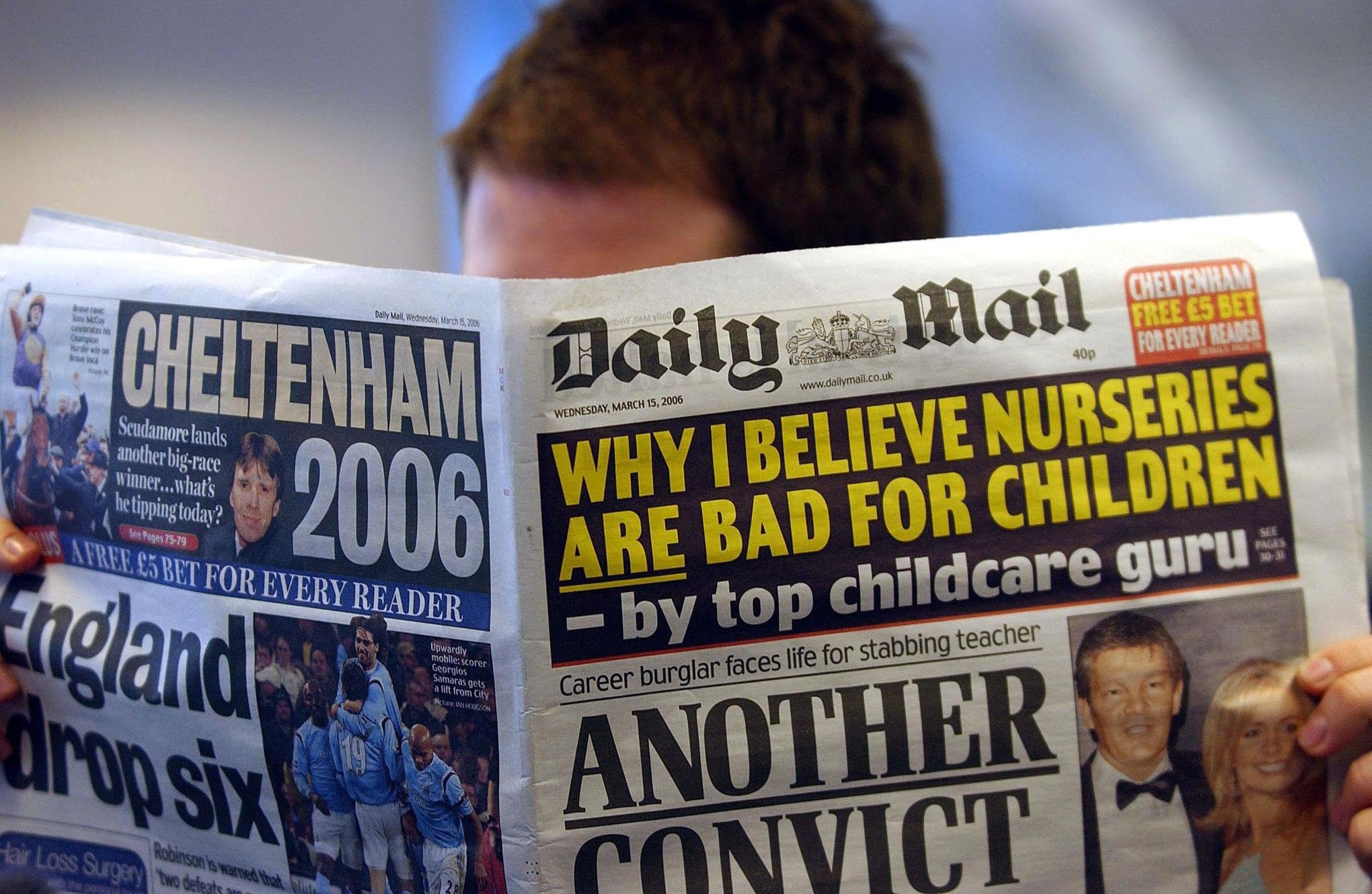
Jonathan Harmsworth followed his father’s example when he gave Paul Dacre the editor’s chair after English retired in 1992. Harmsworth’s stated philosophy is that he gives his editors all the authority and responsibility to do the job, and intervenes only rarely. He told the Leveson Inquiry into hacking and other wrongdoings by the press that he was available if people such as senior politicians, wanted to plead that they had been treated unfairly by the Mail titles, which must have come as news to the politicians, to Dacre and indeed everyone else.
The editor of the Daily Mail has indeed a great deal of security of tenure – there have been only three in the last half-century – English, Dacre and Geordie Greig. So the parting of the ways with Dacre in 2018, when he still had plenty of energy, was a little strange. One of the greatest journalists of his generation, though a touch manic, Dacre presided over a period during which it pretty much overtook The Sun in sales and ran the campaign to jail those who murdered Stephen Lawrence. It was the most influential title in the country, and the one that the Conservatives, in particular, paid particular attention to – because of Dacre’s preternatural skill at discerning (and moulding) the mood and attitudes of that mysterious domain they call Middle England.

Ostensibly, it was time for Dacre to retire. David Cameron, as prime minister, reportedly approached Rothermere to get Dacre sacked in the run-up to the 2016 referendum, but, credit to Rothermere, to no avail. In due course, Dacre was to publish the infamous claims about Cameron the Oxford undergraduate placing his own honourable member into the jaws of a (dead) pig for a laugh.
Even so, as Dacre approached his 70th birthday in 2018, his successor, Geordie Greig, was appointed and Dacre left with some honorific titles. It may well be – this is pure speculation – that Dacre had simply strayed too far away from rationality. From what little can be discerned about Jonathan Harmsworth’s politics, he seems to have been a bit of a Cameron, a conventional moderate Tory and a Remainer, and possibly a bit more relaxed about the state of modern Britain (and its royal family) than his longstanding editor of the day. The Mail, like the Conservative Party and the monarchy, is a deeply traditionalist institution with its share of old-fashioned attitudes, but also appreciates that survival means having to move with the times. Greig may well have seemed the better bet for the future.
Rothermere said a few years ago that his job was not to lobby for his business interests, and that if he did have to do that he preferred to do so in government offices with civil servants present. He says mixing pleasure and business is “bad manners”. Nonetheless, he’s been a guest at Chequers, for example when Cameron was prime minister and Jeremy Hunt was culture secretary when Hunt tried to get him interested in his project for local television stations. He was also friendly with Nick Clegg and obviously he knows and has entertained Michael Gove, until recently happily married to Mail columnist Sarah Vine. At the Leveson Inquiry Rothermere frequently said he couldn’t recall the content of conversations with politicians, but made no effort to disguise the extent of his dealing with them. There was, though, one outright denial of a meal with Tony and Cherie Blair that had been documented by Blair’s chief of staff, Jonathan Powell. Rothermere was supposed to have dismissed one of Dacre’s character assassinations of Cherie as “a bit of fun”.
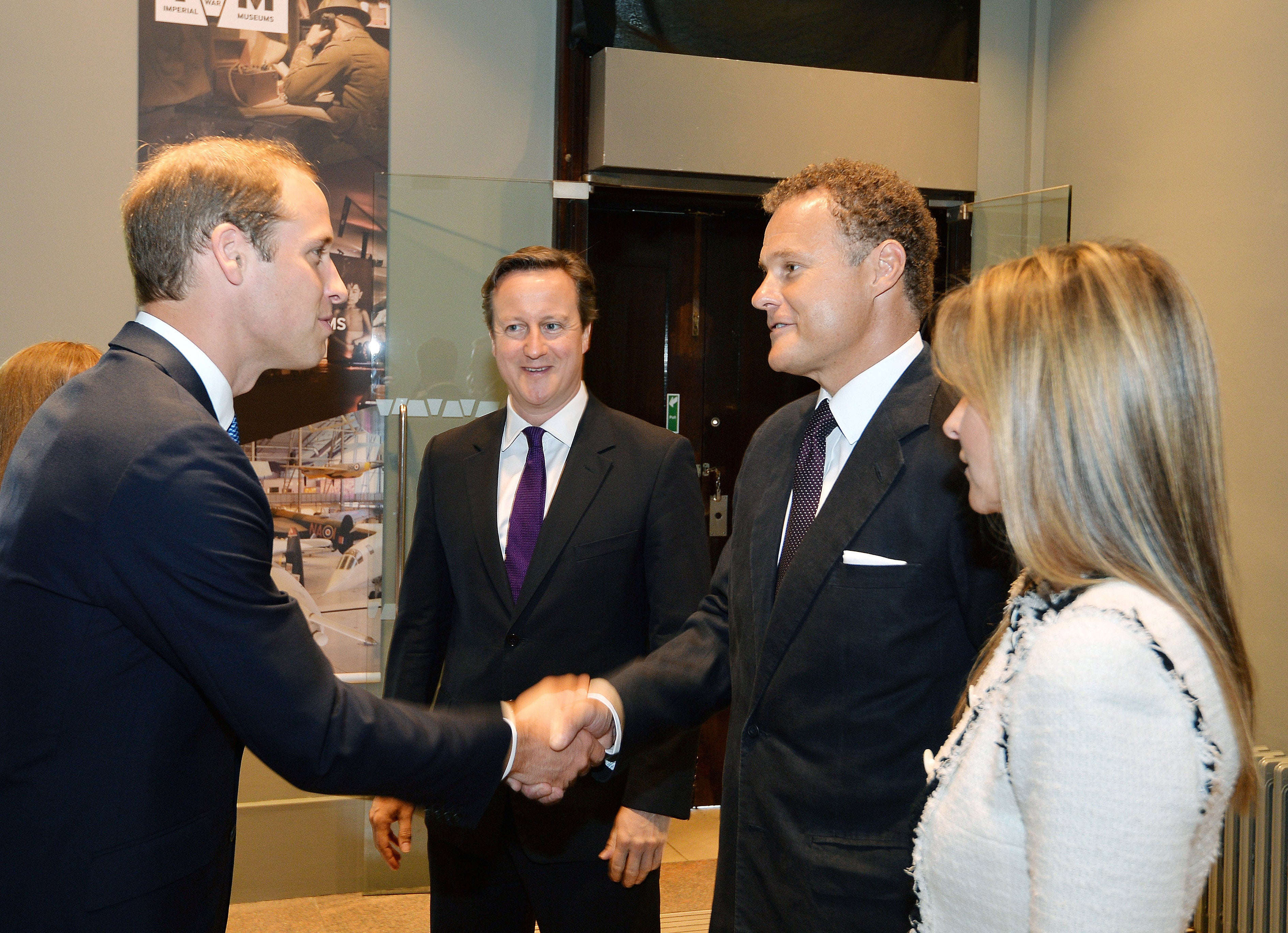
If there is a criticism to be made of Rothermere the proprietor, it is an odd one – that far from intervening and micromanaging, he was actually too hands-off, and didn’t do enough to restrain Dacre, and stood by for too long while Dacre published material that, in the view of many, did nothing to foster a cohesive multicultural society, and much to sow hatred and division and generally harm Britain. It’s debatable.
Certainly, this Harmsworth follows his father’s moderate political instincts rather than those of his grandfather, the fearsome 2nd Viscount, who was notoriously sympathetic to Hitler and Oswald Mosley’s fascist Blackshirt movement in the 1930s. Though historically somewhat remote, these facts still occasionally get thrown at the blameless Jonathan Harmsworth, child of the 1960s not the 1860s, and this was notably true during a lengthy feud with the proprietor of the Express titles, Richard Desmond. Having decided that Desmond was not a fit and proper person to own the venerable titles, Dacre had taken to routinely labelling Desmond a “pornographer”, and the retaliation in the Express was vicious. The “Hurrah for the Blackshirts!” headline was endlessly recycled, but it also extended to coverage of the present Lord Rothermere’s private life. He talked about at the Leveson Inquiry a decade ago: “It wasn’t that I was offended by it. He [Desmond] seemed to think the fact that I have an illegitimate son is of some concern. In fact my son – I’m very proud of my son, he’s a member of the family, we go on holiday together and my children are very proud to call him their brother, so I don’t make a secret of it and frankly the idea that I’m offended by it is offensive.”
Frankly, too, Harmsworth’s dynasty is full of complex and colourful figures, such as his late mother, the movie star and socialite Patricia Rothermere, known as Beverley Brooks in the credits to Reach for the Sky (1956) and popularly as Bubbles, after her taste for champagne (rather than a reference to her curly hair, so like her son’s). Jonathan Harmsworth is officially a “non-dom”, meaning he pays no UK tax on his income that comes from outside the UK. He has a substantial home in France as well as a new-build (2001) Palladian mansion in Wiltshire. He’s worth about £1bn.
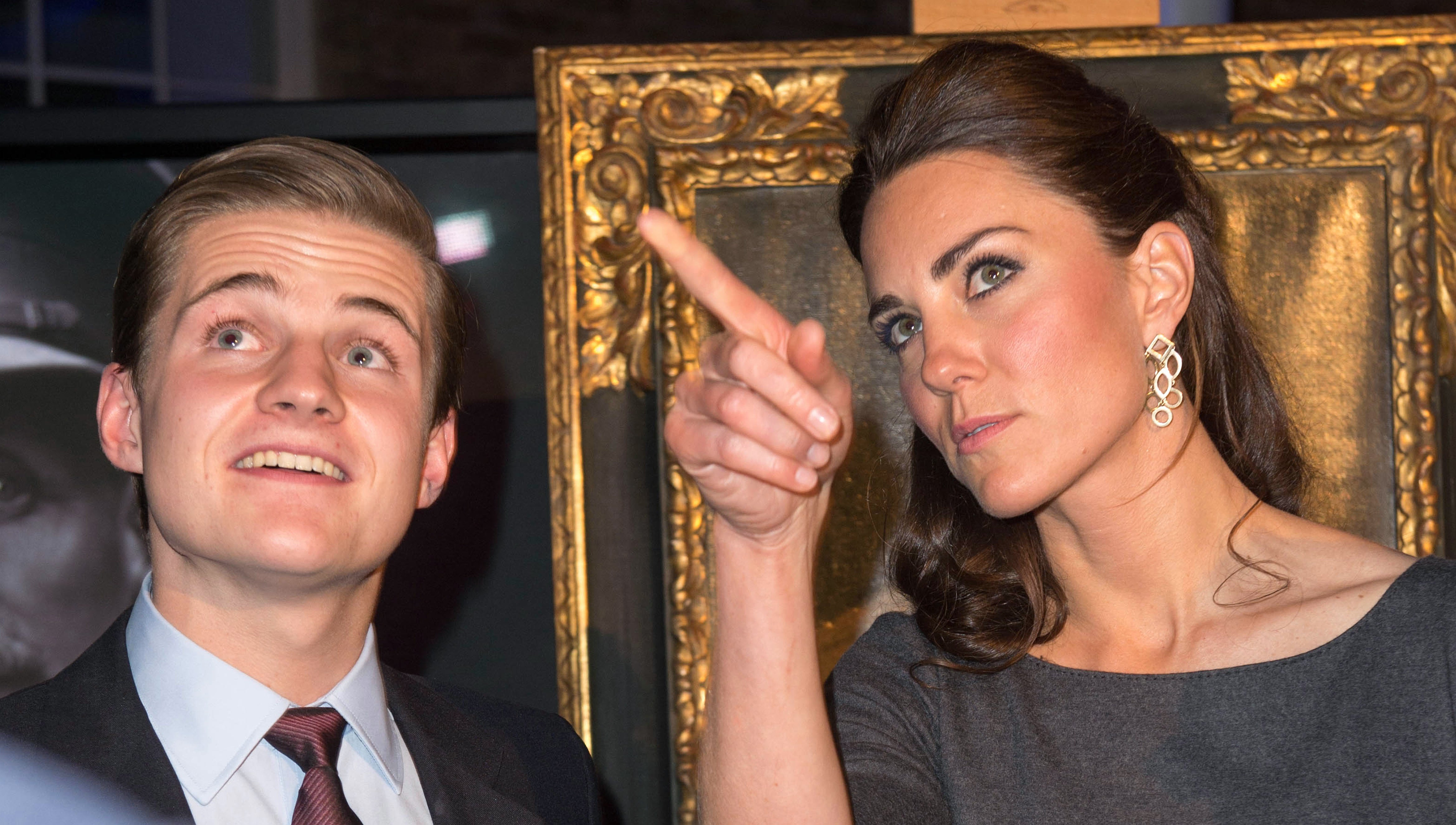
He is obviously influential, but he exercises his power with considerable restraint, in sharp contrast to his hungrier ancestors. Stanley Baldwin, leader of the Conservative Party, criticised the 2nd Viscount Rothermere and the other great press baron of the day, Lord Beaverbrook, in a famous speech that still resonates: “The newspapers attacking me are not newspapers in the ordinary sense. They are engines of propaganda for the constantly changing policies, desires, personal vices, personal likes and dislikes of the two men. What are their methods? Their methods are direct falsehoods, misrepresentation, half-truths, the alteration of the speaker’s meaning by publishing a sentence apart from the context … what the proprietorship of these newspapers is aiming at is power, and power without responsibility – the prerogative of the harlot throughout the ages.”
The paradox of Harmsworth is that he is a personable, level-headed businessman of moderate opinions but, at least under Dacre, was content to allow his titles to be used in much the propagandistic way that Baldwin called out all those years ago – but also protecting the sanctity editorial independence. As a businessman Rothermere has had more successes than flops; as a media proprietor, it is fair to add, you can’t really win.
Join our commenting forum
Join thought-provoking conversations, follow other Independent readers and see their replies
Comments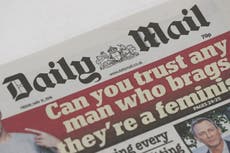

Bookmark popover
Removed from bookmarks